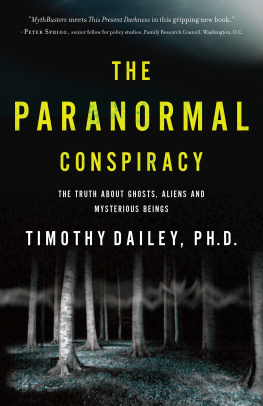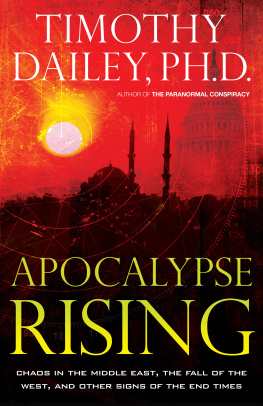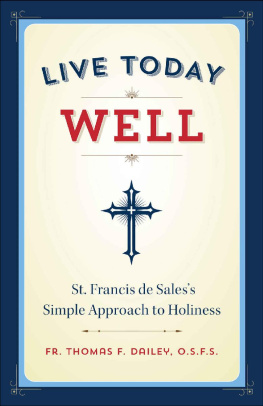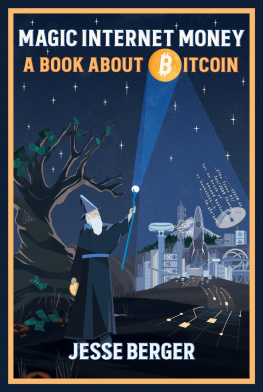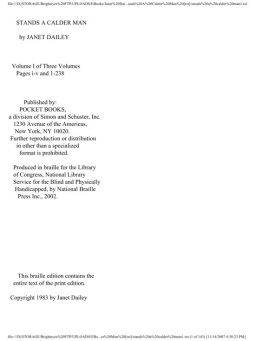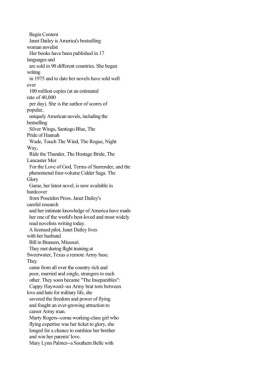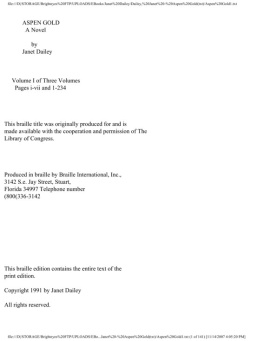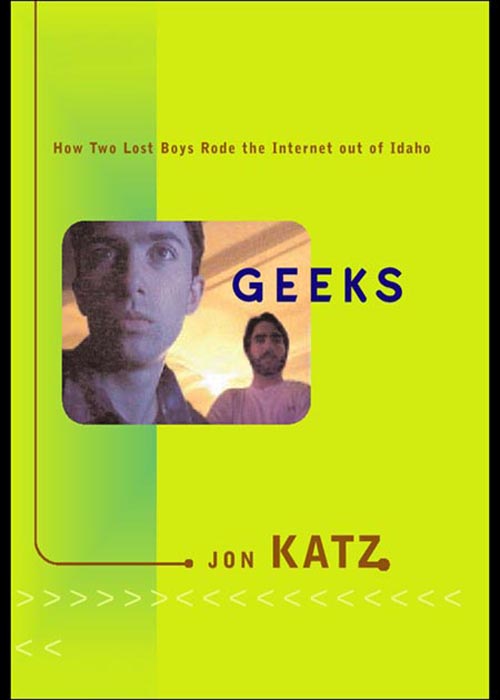
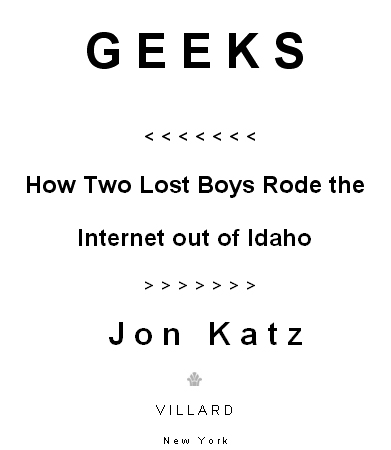
CONTENTS
> > >
For Rob (CmdrTaco) Malda
and Jeff (Hemos) Bates
< < < < < < < < < < < < < <
Geek (noun) [probably from English dialect geek, geck fool,from Low German geck, from Middle Low German; Firstappeared 1914]:1. a person often of an intellectual bent who isdisapproved of. 2. a carnival performer often billed as a wild manwhose act usually includes biting the head off a live chicken orsnake.
Merriam-Webster Dictionary
Computer geekn. 1. One who eats (computer) bugs for a living.One who fulfills all the dreariest negative stereotypes about hackers: an asocial, malodorous, pasty-faced monomaniac with all thepersonality of a cheese grater. Cannot be used by outsiders withoutimplied insult to all hackers; compare black-on-black vs. white-onblack usage of nigger. A computer geek may be either a fundamentally clueless individual or a proto-hacker in larval stage. Alsocalled turbo nerd, turbo geek. See also propeller head, clustergeeking, geek out, wannabee, terminal junkie, spod, weenie. 2. Someself-described computer geeks use this term in a positive sense andprotest sense (this seems to have been a post-1990 development).
Eric S. Raymond,
The New Hackers Dictionary, third edition
< < < < < < < < < < < < < <
Geek:A person who, for one reason or another, is considered socially unacceptable by the person speaking. A computer geek issomeone who is socially inept but expert with computers. As computers become more important in the average persons life, this termbecomes more often a compliment than an insult.
Mike McConnell,
High-Tech Dictionary
Geek:Short for computer geek, an individual with a passion forcomputers, to the exclusion of other normal human interests. Depending on the context, it can be used in either a derogatory or affectionate manner. Basically, geek and nerd are synonymous.
Webopedia
Geek:Encarta Encyclopedia found no matches for: GEEK
Microsoft Encarta Encylopedia,
1998 edition
< < < < < < < < < < < < < <
Geek:A member of the new cultural elite, a pop-culture-loving,techno-centered Community of Social Discontents. Most geeks roseabove a suffocatingly unimaginative educational system, wherethey were surrounded by obnoxious social values and hostile peers,to build the freest and most inventive culture on the planet: the Internet and World Wide Web. Now running the systems that run theworld.
Tendency toward braininess and individuality, traits that oftentrigger resentment, isolation, or exclusion. Identifiable by a singularobsessiveness about the things they love, both work and play, and awell-honed sense of bitter, even savage, outsider humor. Universallysuspicious of authority. In this era, the Geek Ascension, a positive,even envied term. Definitions involving chicken heads no longerapply.
Jon Katz,
Jackson Township, New York
June 1999
ACKNOWLEDGEMENTS
> > >
A HOST of people supported this book.
Im grateful to Cate Corcoran, my editor at Hotwired, to whom I brought my initial notions about geeks several years ago; she encouraged, published, and edited my first writings on the subject. And to Mike Kuniavsky, a geek pioneer. And, especially, to Louis Rossetto.
I appreciate Ann Godoff of Random House for agreeing to take on this book, though she had no idea what I was talking about. My thanks, as well, to Brian McLendon, Bruce Tracy, and Diana Frost of Villard and Random House. And to Brian DeFiore.
Im grateful to Beverly Kees, Ken Paulson, Paul McMasters, Adam Powell, and Brian Buchanan of the Freedom Forum for supporting me at a crucial time.
I thank Jann Wenner, Bob Love, and Will Dana at Rolling Stone for loving this idea from the beginning, and for commissioning a story about Jesse Dailey and Eric Twilegar, thus making possible my treks to Idaho and Chicago. The wise David Malley, who helped me sort through stacks of e-mail, notes, and tapes, and Deb Goldstein also deserve my gratitude, as does Daryl Lindsey.
Im particularly grateful to Rob Malda and Jeff Bates of Slashdot, for giving me a home on the Web and for publishing the Hellmouth series and the many responses to it. Ethical and gifted, they embody the very best qualities of geekhood.
Kathy Anderson and Theodore ONeill of the University of Chicago lent an ear in a noble, if impossible, enterprise. Mike Brown of the English department at Middleton High School in Idaho reminds me that teaching can be the noblest profession.
Thanks to Flip Brophy, Ruth Coughlin, my wife, Paula Span, and my friend Jeff Goodell. John Heilemann and George and Janet Scurria were also helpful. I am grateful to Mary Robertson.
I owe a great deal to the thousands of geeks who have e-mailed me these past few years to tell me their stories, share their theories, challenge my assumptions, and offer encouragement. They are building the most exciting subculture in the world.
Most of all, I am forever in the debt of Jesse Dailey, who reached out to me via the miracle of the Internet, and of Eric Twilegar. They opened up their lives to a stranger. They spent countless hours with me face to face, on the telephone, and via e-mail and various messaging systems. They graciously, courageously, and truthfully answered my endless and very personal questions. They also made possible my first online gaming kill, on Doom. They are awesome geeks, bound for glory.
INTRODUCTION: THE GEEK ASCENSION
> > >
WHERE DOES it begin, this sense of being the Other? It can come early on, when you find yourself alone in your childhood bedroom, raising tropical fish, composing a poem, writing code, meeting friends mostly online, playing by yourself. Or in middle school, when the jocks turn on you and you pray you will get through gym class alive.
Or maybe it comes in high school, where you find yourself on the outside looking in, getting jostled in the halls, watching TV on weekends while everyone else goes to parties.
After some time, theres an accumulation of slights, hurts, realizations: You dont have a lot of friends; other kids avoid you; youre not good at sports or interested in shopping; the teachers seem to like their other students a lot more. There are few school activities you want to be part of, even if you could. The things you like arent the same things most other people like.
The alienation is sometimes mild, sometimes savage. Sometimes it lasts a few years, sometimes a lifetime. It depends on where you live, who your parents are, whether theres a single teacher who appreciates you, whether you can cling to one or two friends, how well you can hide your brains.
Increasingly, your lifeline is technology. Computers and the amazing power they give youto install a new operating system, to confide in like-minded allies three time zones away, to slay tormentors on the screen even if you cant do much about the ones at schoolare your passion. They give you skills and competence, or distraction and escape, or direction and stature, or all of the above.
Next page

